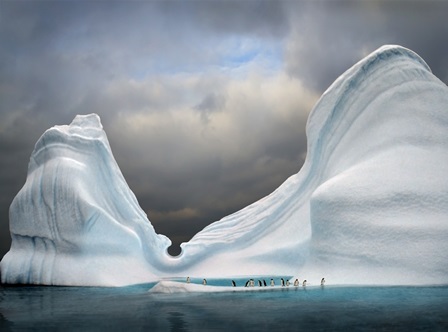
While increasing carbon dioxide levels are the dominant factor contributing to climate change in the Arctic, short-lived climate pollutants (SLCPs) also play a significant role. Targeting SLCPs by reducing black carbon and methane emissions will help to slow Arctic warming in the near term.
The importance of reducing black carbon was emphasized at a Ministerial meeting of the Arctic Council in Iqaluit, Nunavut, Canada on 24 April 2015, in which UNECE participated as an observer. Arctic Council Member States are Canada, Denmark (including Greenland and the Faroe Islands), Finland, Iceland, Norway, Russian Federation, Sweden, and the United States of America— all of which are UNECE members.
As black carbon emitted both within and outside of the Arctic region contributes to Arctic warming, reducing transboundary air pollution is critical. UNECE therefore invited the Arctic Council to explore opportunities for closer cooperation with its Convention on Long-range Transboundary Air Pollution (CLRTAP) in order to reduce black carbon emissions. In particular, synergies could be found with the work under the newly revised Protocol to Abate Acidification, Eutrophication and Ground-level Ozone (Gothenburg Protocol), which now also encompasses emission reduction commitments for fine particulate matter (PM2.5) including black carbon. Already, in accordance with a decision by Arctic Environment Ministers in 2013, Arctic Council States and other Parties to CLRTAP have, for the first time, submitted national emission inventories for black carbon, which will assist in identifying emission trends and mitigation opportunities.
Foreign ministers at the Arctic Council meeting acknowledged the contribution of UNECE to the work of the Council. Working with the United States Chairmanship, other Arctic States and relevant programmes and bodies under them and CLRTAP, UNECE will further explore strengthened collaboration in the coming months.

